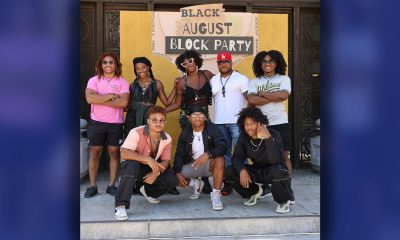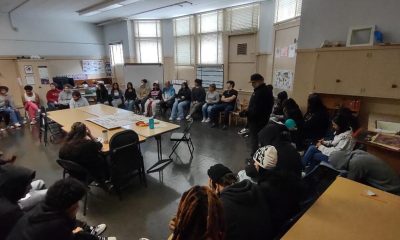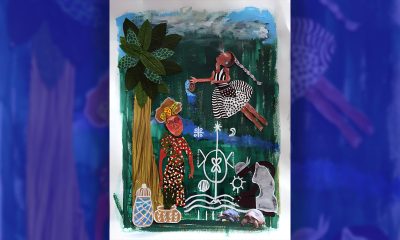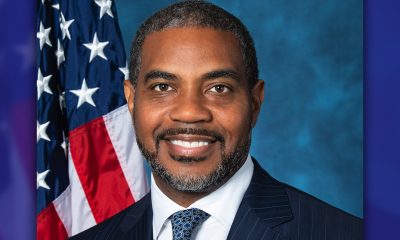World
For Haiti, Relief Will Come in the Long Term
By Safiya Mann
Special to the NNPA from the New York Amsterdam News
On Jan. 12, 2010, a 7.0 magnitude earthquake shook Haiti, taking more than 230,000 lives and displacing over 1 million people, causing a massive housing crisis. Compounding the emergency situation were confusion and violence. Although immediate responses for aid poured into Haiti from around the world, a recent scandal has swirled around the relief efforts of several organizations pertaining to the allocation of their resources and the seemingly meager returns that can be seen on the ground.
The Amsterdam News sat down with Diana Skelton, deputy director general of the ATD Fourth World, an international nonprofit organization that tackles overcoming poverty and the injustices that accompany it, such as social exclusion.
AmNews: To start, please expand upon the difference between long-term and short-term aid.
Skelton: First, aid refers to getting outside help, when long-term help can come from within, which sometimes short-term aid doesn’t support (looking for solutions from inside the affected populations), which can end up counter productive. A lot of times solutions to a crisis are not thought through with a community, which can inhibit development, looking to community leaders can be a great resource for
What was your team’s experience with the 2010 earthquake?
The Fourth Word volunteers have been in Haiti for 30 years. At the time of the earthquake, they were in a district of 20,000 people. The U.N. had designated this particular district as a “no-go zone” for their workers because of safety concerns, which caused other NGOs (non-governmental organizations) to follow suit, which led to this district being underserved.
The team had a close experience with the earthquake, and the effects in the district were terrible. It really destroyed livelihoods. And in addition to the initial shock, the district was underserved by aid and there was widespread hunger. Essentially, the aid was very unequally distributed.
The ATD Fourth World partnered with another organization to allocate food resources, which resulted in a concentrated effort between youth in the community, ATD volunteers and other community residents to find children, particularly children 5 and under, and provide them with food and help. This is an example of needing the expertise of the members of the community to provide effective help.
What was the main form of short-term food aid?
The main form of short-term food aid is this: An organizations truck shows up unannounced in an area and then drops of rations in the area. This causes conflicts because people are dealing with uncertainty over a valuable and finite resource, and since it is first come first serve, it only increases the chances of violence.
What are other ways than just financial aid that a country could be rebuilt?
Because those five years didn’t do enough to draw from the experiences and knowledge of people in poverty, and you see large sums of money being poured into Haiti. But a lot of times, those large sums of money go towards hiring an expert from another continent to come in, not knowing the language, not knowing the people, not knowing the culture, and to say here’s my plan.
Activism
Retired Bay Area Journalist Finds Success in Paris with Black History Tours
In the late 90s, Stevenson finally realized her dream of living in Paris, now with her daughter. She started exploring the history of Africans in the city and would go on to teach others the same. Her business, which she named Black Paris Tours (BPT), received a significant boost when a family friend gave her a stack of cash and encouraged her to expand on the knowledge that she had only started to share with people she knew.

By Post Staff
There were two things Oakland-born, East Palo Alto-raised Ricki Stevenson always dreamed of:
- Going to New York as a newscaster to tell the true story of Blacks in America.
- Living and working in Paris one day.
Her dreams of life in Paris began when she was three years old and her mother, a former professional dancer, took her to see Josephine Baker perform. She was 11 when her parents took her to the Stanford University campus to meet James Baldwin, who was speaking about his book, “The Fire Next Time.” Ricki says that’s when she knew she’d one day live in Paris, “the city of light!”
But before that would ever happen, she had a tumultuous career as a newscaster across the country that was inspired by her family’s history.
Stevenson recalls marching with Cesar Chavez as he fought for labor rights for farm workers in California.
“Are we Mexican too?” she asked her parents. “No, but we will fight for everyone’s human rights,” they responded to her.
Ironically, Ricki’s paternal family roots went back to Greenwood, Oklahoma, infamous for the 1921 bombing of Black Wall Street. A time when Black people had oil wells, banks, and a thriving business community.
This background would propel her into a 25-year journalism career that gave her the opportunity to interview greats like President Jimmy Carter, PLO leader Yassir Arafat, James Baldwin, Rev. Jesse Jackson, UN Ambassador Andrew Young, Miriam Makeba, and the leaders of South African liberation movements.
A job offer from KCBS radio brought her back to the Bay Area in the 1980s. Then came the switch to TV when she was hired as a Silicon Valley business reporter with KSTS TV, working at the first Black-owned television station in northern CA (created and owned by John Douglas). Along the way, Stevenson worked as an entertainment reporter with BET; coproduced, with her disc jockey brother Isaac, a Bay Area show called “Magic Number Video;” lived in Saudi Arabia; worked as an international travel reporter with News Travel Network; and worked at KRON TV a news anchor and talk show host.
In 1997, Stevenson realized her dream of living in Paris with her young daughter, Dedie. She started exploring the history of Africans in the city and would go on to teach others the same. Her business, which she named Black Paris Tours (BPT), received a significant boost when a family friend, Admiral Robert Toney put a chunk of money in her hand. He said, “Ricki, my wife and I have been coming to Paris for 20 years, but in just two days with you and Dedie, we’ve learned and seen more than we ever did before.”
Years after BPT took off, Ricki met Nawo Carol Crawford and Miguel Overton Guerra, who she recruited as senior scholar guides for Black Paris Tours.
Guerra says he is proud of his work with Black Paris Tours in that it provides a wealth of information about the rich legacy of African and African American history and influence in Paris and Europe.
“I tend to have a feeling for history always being a means of a reference point backwards … you start to understand the history, that it isn’t just the United States, that it began with African people,” Guerra says.
He said that it’s been a pleasure to watch people learn something they didn’t know before and to take them through the city to key points in Black history, like hangout spots for writers like Baldwin and Richard Wright, restaurants in the busiest parts of Paris, the home of Josephine Baker and so much more.
Although the tours are open to all, Guerra hopes that those of African descent from all over the world can embrace that they don’t have to just stay where they are because movies and media have portrayed cities like Paris to be only white, it’s multicultural and accepting to all.
“We’ve been here, and we’ve been there, going way back when. And we shouldn’t be considered or consider ourselves to be strangers in any place that we go to,” he said.
Stevenson notes they’ve had 150,000 people take their tour over the years, with notables like former NFL quarterback Colin Kaepernick, Smokey Robinson, Steve Harvey, Miriam Makeba, and more.
Friends and former media colleagues of Stevenson compliment the BPT crew on their knowledge of the city and their ability to always keep it interesting.
“He [Guerra] just had a deep, deep wealth of knowledge and he was constantly supplanting information with historical facts and the like. I love that it was demonstrating and showing how Black people have thrived in Paris or contributed to the culture in Paris,” Candice Francis said.
She toured in the summer of 2022 and stated that in the two weeks that they visited Paris, BPT was the highlight of her trip. She shared that she was proud of Stevenson and the life she’d managed to manifest and build for herself.
“Even if you’re visiting Paris for the tenth time, if you haven’t taken the tour, then by all means, take it,” Francis emphasized.
Magaly Muñoz, Gay Plair and Paul Cobb also contributed to this story. You can book your own adventure with Black Paris Tours at www.blackparistour.com.
Activism
COMMENTARY: Will a Dictator’s Loss Change Trump’s Tune?
What’s happened in Syria has the potential of reshaping the politics of the entire Middle East. The U.S. can’t afford to sit back and do nothing. Now is the time to exert peaceful, diplomatic influence on how Syria maintains stability and goes forward with a new democracy.
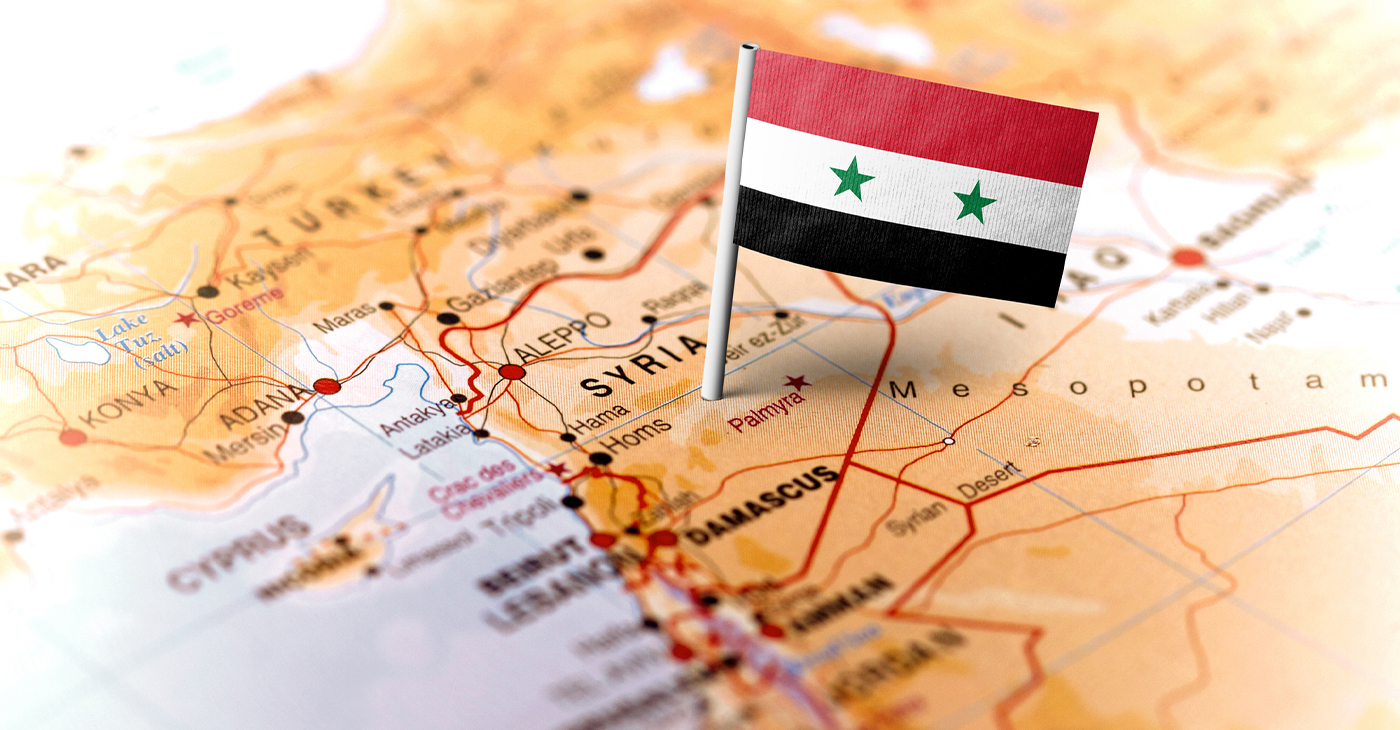
By Emil Guillermo
In our polarized country, half of America can’t wait, while many of us still wonder, “where’s Kamala?”
I hope President-elect Trump — who famously said during the campaign that he’d be a dictator on day one — eats his words.
Dictators aren’t doing so well these days.
Last weekend, the dictator Bashar al-Assad was run out of Syria and sought exile with his puppet master/dictator Vladimir Putin of Russia. In just about two weeks, a coalition of rebels applied enough pressure to end a family regime in Syria that lasted 50 years.
al-Assad’s wealthy family dictatorship plundered Syria and ruled in terror.
It sounds all too familiar to Filipino Americans, many of whom came to the U.S. fleeing the Philippine dictator Ferdinand Marcos.
al-Assad’s end was different from the Filipinos who forged a peaceful People Power movement that chased the Marcos family to Hawaii where they sought refuge from their U.S. puppet handlers.
But as in Manila, there was cheering on the streets of Syria. Men, women, and children. Christian, Muslims, different sects and ethnicities, all united against al-Assad.
al-Assad has been described as a genocidal narco-trafficking tyrant, whose friends were America’s biggest enemies, Iran, Hezbollah, and Russia, said Mouaz Moustafa, the executive director of the Syrian Emergency Task Force, on CNN.
Moustafa said it was amazing that there would be no more Russian airstrikes, no more al-Assad gulags torturing civilians. “To see good triumph over evil is an amazing thing,” he added.
But last weekend has some trickle down.
Consider that we are talking about al-Assad, the one Tulsi Gabbard consorted with and hyped to her colleagues when she was in Congress. Now Assad has been shamed into exile with his puppet master Russia, and Gabbard wants to be the U.S. director of national security? Given her wrongheaded judgment on al-Assad, can she be trusted with any national secrets?
It’s still not over in Syria, as now there will be a scramble to see what kind of governing democracy emerges.
Predictably, Donald Trump has said, “The United States should have nothing to do with it. This is not our fight. Let it play out. Do not get involved.”
Nouveau isolationism?
What’s happened in Syria has the potential of reshaping the politics of the entire Middle East. The U.S. can’t afford to sit back and do nothing. Now is the time to exert peaceful, diplomatic influence on how Syria maintains stability and goes forward with a new democracy.
Overall, the ouster of the dictator should give Trump pause.
If by nominating MAGA loyalists like Gabbard, Pete Hegseth and Kash Patel, Trump’s testing the evolution to strongman rule in the U.S., he should consider what happened before last weekend.
In South Korea, a weak president tried to declare martial law and was voted down by Parliament. That’s a faux strongman.
Let’s hope Trump learns a lesson from the week’s news.
The next president sets the tone for a politics that’s already toxic.
He needs to remember the joy in Syria this week when an autocrat was dumped in the name of freedom and democracy.
About the Author
Emil Guillermo is an award-winning Bay Area journalist. His commentaries are on YouTube.com/@emilamok1. Or join him at www.patreon.com/emilamok
Black History
Biden acknowledged America’s ‘Original Sin of Slavery,’ Pledged Infrastructure Dollars and Long-Term Financial Aid
“Our people lie at the heart of a deep and profound connection that forever binds Africa and the United States together. We remember the stolen men and women and children who were brought to our shores in chains and subjected to unimaginable cruelty,” Biden said in remarks at the National Museum of Slavery, which is built near the chapel where enslaved individuals were forcibly baptized before being sent to America. The museum was built on the property of Álvaro de Carvalho Matoso, one of the largest slave traders on the African coast.
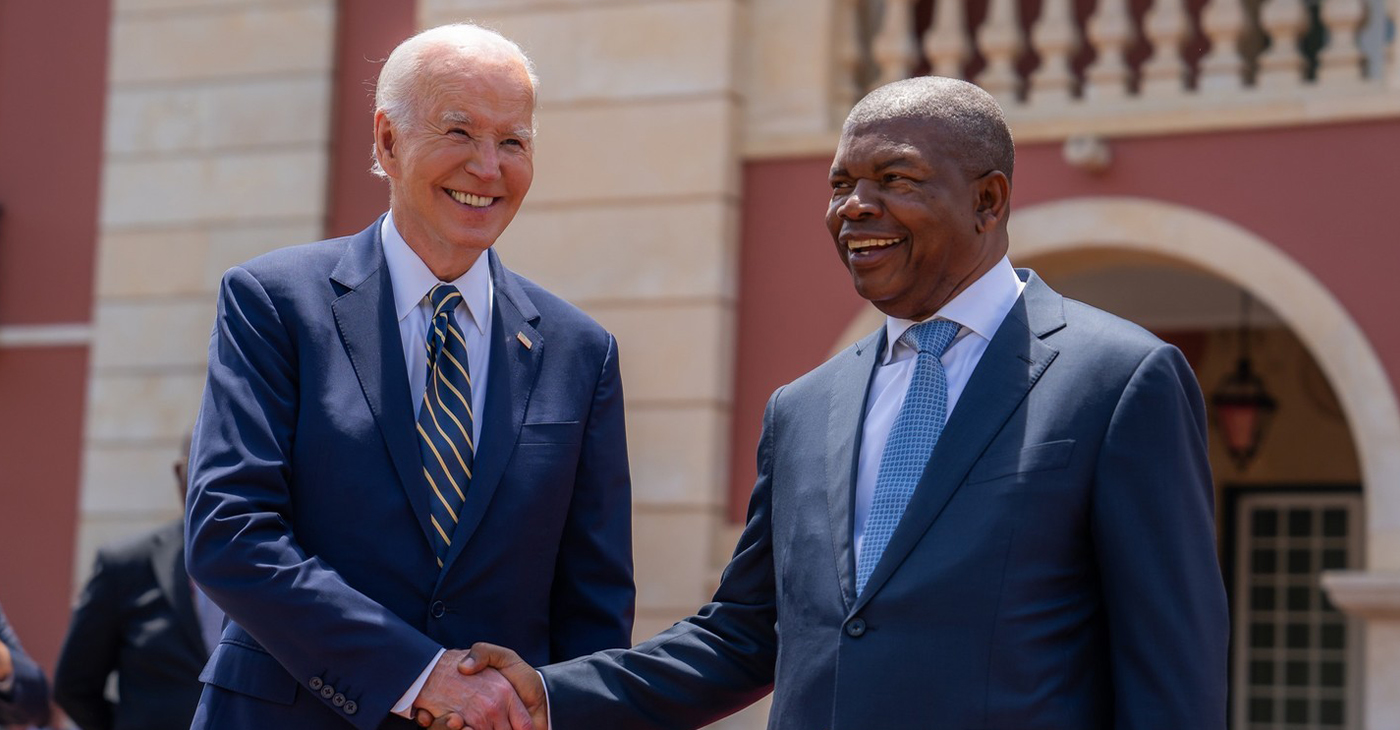
Will Biden’s aid for an above-the-ground Railroad help ease the pain for the African Americans’ Underground Railroad?
By Post Staff
And news dispatches from the Guardian, CNN and AP
When President Joe Biden went to Angola this week the purpose was ostensibly to advance the Lobito Corridor, an unfinished 800-mile railway project meant to facilitate the transfer of critical minerals from interior countries to western ports for exports.
But in a visit to the country’s slave museum, he acknowledged America’s dark past and its connection to Angola in the presence of three descendants of the first captives who arrived in Virginia from Angola in 1619.
The child of two of those captives — Antony and Isabella — was William Tucker, born around 1623. Three of his descendants were present when Biden spoke at the country’s slave museum and humbly acknowledged how the horrific history of slavery has connected the United States and Angola.
“While history can be hidden, it cannot and should not be erased. It should be faced. It’s our duty to face our history,” he said. “The good, the bad and the ugly. The whole truth. That’s what great nations do,” he said.
“It was the beginning of slavery in the United States. Cruel. Brutal. Dehumanizing. Our nation’s original sin. Original sin. One that’s haunted America and cast a long shadow ever since,” Biden spoke as he honored the Tucker family.
After introducing Wanda Tucker, Vincent Tucker and Carlita Tucker, he delivered a hopeful vision for the future in a major speech from the country that was the point of departure for millions of enslaved Africans.
(Wanda Tucker now serves as the faculty chair of psychology, philosophy and religious studies at Rio Salado College in Arizona.)
“Our people lie at the heart of a deep and profound connection that forever binds Africa and the United States together. We remember the stolen men and women and children who were brought to our shores in chains and subjected to unimaginable cruelty,” Biden said in remarks at the National Museum of Slavery, which is built near the chapel where enslaved individuals were forcibly baptized before being sent to America.
The museum was built on the property of Álvaro de Carvalho Matoso, one of the largest slave traders on the African coast.
Biden told the attendees that he’s proud to be the first president to visit Angola and that he’s “deeply optimistic” about the future relationship between the nation and the US.
“The story of Angola and the United States holds a lesson for the world. Two nations with a shared history, an evil of human bondage,” Biden said. “Two nations on the opposite sides of the Cold War, the defining struggle of the late part of the 20th century. And now, two nations standing shoulder to shoulder working together every day. It’s a reminder that no nation need be permanently the adversary of another.”
Biden’s trip aimed to highlight U.S. investments in Angola and the continent in the face of deepening Chinese influence in the region, as Beijing has poured hundreds of billions of dollars into Africa through its Belt and Road Initiative.
Biden took a swipe at China’s moves, without calling out the country by name, and argued the US presents a better alternative.
“The United States understands how we invest in Africa is as important as how much we invest,” Biden said.
“In too many places, 10 years after the so-called investment was made, workers are still coming home on a dirt road and without electricity, a village without a school, a city without a hospital, a country under crushing debt. We seek a better way, transparent, high standard, open access to investment that protects workers and the rule of law and the environment. It can be done and will be done,” the president said.
Biden’s speech comes during what likely could be his last trip abroad as president and as he seeks to deepen relationships with Angola and other African nations at a time when China has made significant inroads in the continent with hundreds of billions of dollars of infrastructure investments, far outpacing the U.S.
During his remarks, Biden touted U.S. efforts to expand its relationships across Africa, including billions of dollars in investments in Angola.
He also announced over $1 billion in new US humanitarian assistance for Africans who have been displaced by historic droughts across the continent.
“But we know African leaders and citizens are seeking more than just aid. You seek investment.
So, the United States is expanding its relationships all across Africa,” Biden said, adding later: “Moving from patrons to partners.”
Ahead of his remarks, the president also met with Angolan leaders, including young people at the museum.
Biden started his day with a bilateral meeting with Angolan President João Manuel Gonçalves Lourenço at the presidential palace in Luanda.
The two men discussed trade and infrastructure, including the US and Europe’s investment in the railroad. They also discussed mutual security interests as Angola has played a key mediating role in the conflict in the eastern Democratic Republic of the Congo.
In November, Angola announced their Incremental Production Decree of fiscal terms designed to enhance the commercial viability of developing oil and gas fields. The decree enhances the commercial viability of developing fields in mature blocks, underexplored areas and stranded resources, while encouraging exploration near existing infrastructure. The US Railroad infrastructure investments could play a major role in enabling increased recovery from producing fields and extending the lifespan of critical infrastructure, the decree is set to generate billions in offshore investments, create jobs and drive economic growth, solidifying Angola’s position as a leading oil and gas producer.
-

 #NNPA BlackPress4 weeks ago
#NNPA BlackPress4 weeks agoTarget Takes a Hit: $12.4 Billion Wiped Out as Boycotts Grow
-

 Activism4 weeks ago
Activism4 weeks agoUndocumented Workers Are Struggling to Feed Themselves. Slashed Budgets and New Immigration Policies Bring Fresh Challenges
-

 Arts and Culture4 weeks ago
Arts and Culture4 weeks agoBeverly Lorraine Greene: A Pioneering Architect and Symbol of Possibility and Progress
-

 Activism4 weeks ago
Activism4 weeks agoOakland Post: Week of March 5 – 11, 2025
-

 #NNPA BlackPress2 weeks ago
#NNPA BlackPress2 weeks agoRev. Dr. Jamal Bryant’s Black Church Target Boycott Mobilizes 150,000
-

 Activism1 week ago
Activism1 week agoWe Fought on Opposite Sides of the Sheng Thao Recall. Here’s Why We’re Uniting Behind Barbara Lee for Oakland Mayor
-

 #NNPA BlackPress4 weeks ago
#NNPA BlackPress4 weeks agoTrump Moves to Dismantle Education Department
-

 #NNPA BlackPress4 weeks ago
#NNPA BlackPress4 weeks agoFighting to Keep Blackness





